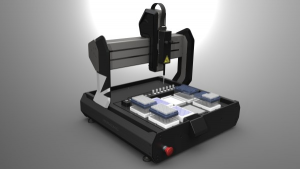APC 17: developing the UK’s low carbon automotive capability
The Advanced Propulsion Centre (APC) invests up to £30 million, three times a year, in collaborative research and development (R&D) projects. These are pre-production match-funded projects. This competition aims to support growth in advanced low carbon propulsion capability in the automotive sector. Up to £27m is available for UK-developed late-stage R&D.
Scope
Your project must concentrate on the automotive market as its primary application, demonstrating the development of on-vehicle technologies for on or off-road vehicles. Technologies may include motors, batteries, power electronics, hybridisation and alternative propulsion systems. Eligible projects will either:
- Accelerate the development of technologies capable of low and zero tailpipe emissions, considering their associated ‘cradle to grave’ supply chains, up to and including end of life.
- Demonstrate a significant reduction in carbon dioxide emissions leading to air quality improvements.
Additionally, your proposal should clearly align with the UK's Industrial Strategy and demonstrate how high-value R&D will take place in the UK as a result of this funding. APC is particularly interested in receiving applications for projects that support the UK's long-term supply chain, associated capabilities and growth aspirations. It is also important that your application demonstrates a positive impact on the UK economy. For example, it could create new supply chains to support the transition to electrification, or lower the overall cost of goods sold to customers.
Eligibility
Your project must:
- have total eligible costs between £5 million and £40 million
- be a minimum of 50% match funded
- start on 1st April 2021
- last between 18 and 42 months
APC 17 closes on 14th October 2020. You can find further information regarding eligibility, scope, and how to apply here. For our help in putting together a competitive proposal, please contact us today.
How to make the most of a remote internship
RedKnight's Marketing and Business Development Intern, Hannah, shares her top tips for making the most of a remote internship opportunity.
 This week marks my 12th week with RedKnight Consultancy as a Marketing and Business Development Intern. When I first interviewed for the position in April, I never imagined that the internship would start on a remote basis. Let alone that now, in August, I’d still be working from home. I have never met RedKnight’s directors in person, nor have I stepped foot into their office. However, I have learned a lot over the course of the last three months and gained valuable experience. Here are some of my top tips to succeed in a remote internship:
This week marks my 12th week with RedKnight Consultancy as a Marketing and Business Development Intern. When I first interviewed for the position in April, I never imagined that the internship would start on a remote basis. Let alone that now, in August, I’d still be working from home. I have never met RedKnight’s directors in person, nor have I stepped foot into their office. However, I have learned a lot over the course of the last three months and gained valuable experience. Here are some of my top tips to succeed in a remote internship:
1. Communicate often
With everyone working from their respective homes or workspaces, it is important to keep in touch regularly. Please don’t be afraid to reach out to a colleague if you need help with something! You can send them an email or a simple WhatsApp message in a matter of seconds. If something needs to be tackled in more depth, then a video call (at a time that works for everyone) can also be a great way to maintain productivity. At RedKnight Consultancy, we start each week with a team meeting held via Zoom. This is something that I’ve found really useful – it’s a great way to catch up and set goals for the week ahead.
2. Be proactive
Remote working provides great opportunities to be proactive – a moment of inspiration can be developed into a fully-fledged idea and put into practice. As there are no colleagues in the immediate vicinity to provide constant support throughout the day, it is essential that you use your initiative and have belief in your own ability. I’ve found that as a remote intern, you’re likely to have more responsibility and independence than you would if you were office-based. This isn’t something you should fear – rather, the challenge should be embraced. This kind of experience will help prepare you for your future career.
3. Get yourself into a routine
Without the regularity of a commute, routines can be a little harder to achieve and pin down. I try to wake up at the same time each day and then I get myself ready as if I am heading to the office. This prepares me for the working day ahead. When you have a routine in place, you can also be sure of the times you’re available for social and recreational activities. This is an important way of breaking up the day when your home becomes your office. I try to make time each day to go for a walk and get some fresh air. For me, this has been key to maintaining a healthy work-life balance.
4. Be organised
Organisation is the key to success when it comes to remote internships. I’ve found that carefully planning my time at the start of each week works well for me. It has introduced structure into my working week, subsequently increasing my motivation and productivity levels. Additionally, make sure your laptop is charged at the start of each day, have a pen and paper handy for meetings, and check your emails regularly; these small steps will all help you to have a productive working day.
5. Enjoy the benefits of home working
Remote internships have numerous advantages – home comforts can be a real treat when you’re working hard! The lack of a commute that could take up around two hours of your day can be replaced with a slightly later wake up time: a good night’s sleep will stand you in good stead to feel refreshed and motivated for the day ahead. In addition, remote internships are great in that there are no longer any geographical limitations. You can work from anywhere with an internet connection! I think that it would be great for remote internships to remain a long-term option. This would make work experience opportunities more accessible to those who live outside London and other major cities.
I hope that these tips are useful for anyone else who finds themselves in this unusual position. Working from home for the entirety of my internship was unexpected, but it hasn’t affected my overall experience. I am pleased to say that I will be continuing in my role with RedKnight, again on a remote basis – a clear sign that remote internships can work well for both interns and businesses alike! If you have any questions about remote internships or remote onboarding, please feel free to get in touch.
GeneFirst Awarded €2.8m in Horizon 2020 Grant Funding for Rapid Covid-19 Diagnostic
RedKnight are delighted to have supported GeneFirst with its successful application to Horizon 2020, securing the innovative med-tech start-up and its 4 collaborating partners (two SMEs and two hospitals) over €2.8m in grant funding. In total, 144 applications were submitted to the Innovative Medicines Initiative (IMI) competition, of which 8 projects have been selected for funding (6% success rate). The successful projects represent the most promising advances in therapeutics and diagnostics to combat the Covid-19 pandemic.
GeneFirst’s project, entitled RAPID-COVID, aims to clinically validate its innovative multiplex technology in both point of care and high throughput (HTP) settings, which includes testing for SARS-CoV-2. Based in Oxford, GeneFirst provides simple, reliable, and effective molecular solutions to aid the accurate diagnosis of diseases and the improvement of patient management.

As of July 2020, the COVID-19 pandemic has caused over 11 million infections globally, claiming more than 500,000 lives. In response to the current outbreak, a rapid and definitive diagnosis of the specific SARS-CoV-2 is crucial. A recent study has shown that 5.8% of SARS-CoV-2 infected and 18.4% of non-SARS-CoV-2-infected patients had other concurrent pathogen infections. Therefore, single target testing is not optimal; failure to distinguish between different pathogens may lead to unnecessary antimicrobial use, cross-infection of mis-grouped patients, and further spreading of the infection.
Simple, sensitive, and multiplex detection of all respiratory pathogens is technically challenging. In response to the need for faster and better detection of multiple respiratory pathogens, GeneFirst has developed a prototype using its innovative proprietary technology - MPA (Multiplex Probe Amplification). The prototype will simultaneously detect and differentiate SARS-CoV-2 as well as 30 other common respiratory bacteria and viruses.
GeneFirst’s assay will allow for accurate, cost-effective, and comprehensive diagnoses during the current outbreak, as well as future routine diagnosis. In this project, the consortium aims to analytically and clinically validate this assay on both high throughput and point of care platforms. This strategy provides maximum flexibility for screening and triage, allows better and faster care, alleviates pressures on healthcare systems, and improves patient recovery rates.
Dr Winnie Wu, COO at GeneFirst, said of the success,
“We are ecstatic with this outcome and all consortium partners are very excited to start the project. For an SME, securing this funding allows GeneFirst to further its R&D and to deliver these crucial diagnostics at scale and pace in time for the winter season. We have pulled together a great project team for the delivery.
We credit our bid success to the RedKnight team; without their support, we would not have been able to achieve what we did in the short time needed to submit the application. We found RedKnight to be professional and diligent, and it has been a real pleasure working with them. This is our first collaborative opportunity and I am confident that our partnership will continue into the future."
Helping companies grow is RedKnight’s core mission. You can find out more about the types of projects we support here.
Sort and segregate nuclear waste: phase 1
 This is a Small Business Research Initiative (SBRI) competition funded by the Nuclear Decommissioning Authority. Organisations can apply for a share of £3.9 million, including VAT, to develop an autonomous, integrated toolkit to sort and segregate nuclear waste. The aim is to reduce the level of waste requiring disposal, thereby increasing productivity, reducing costs, and improving safety.
This is a Small Business Research Initiative (SBRI) competition funded by the Nuclear Decommissioning Authority. Organisations can apply for a share of £3.9 million, including VAT, to develop an autonomous, integrated toolkit to sort and segregate nuclear waste. The aim is to reduce the level of waste requiring disposal, thereby increasing productivity, reducing costs, and improving safety.
Eligible projects will reduce waste by prioritising its recycling over its disposal, as well as reduce the number of waste sorting and segregation processes carried out by humans. Additionally, all projects should increase productivity and be scalable and transferable.
Applications must address all of the following:
- detect the type and intensity of the radioactivity present using existing technology or off-the-shelf equipment
- determine the composition, size, shape, and surface area of the material
- sort and segregate the waste by radioactive classification and material type
- remotely move the waste from a specific area, process it and then pack it into the appropriate container (for example, skips, drums, boxes or bags) ensuring the space used is optimised
- collect and analyse data and images, and retain accurate records
This is Phase 1 of a 2-phase competition:
Phase 1: Research and Development contracts, feasibility study (this competition)
- Up to £600,000, including VAT, is available for Phase 1.
- Projects will last up to 3 months.
- You must produce a technical feasibility study for an innovative and integrative solution to the problem.
Phase 2: Research and Development contracts, prototype development and testing
- Only successful applicants from phase 1 will be able to take part in phase 2.
- Up to £900,000, including VAT, will be allocated for each contract for up to 15 months.
- You must develop and demonstrate a full-scale prototype in a non-radioactive environment.
This competition runs from 17th August - 11th November. For more information, please visit Innovate UK. If you think that you may be eligible for funding, contact us today to arrange a free consultation.
ISCF Transforming foundation industries: Building a resilient recovery
£8 million in grant funding is available for projects supporting the recovery and growth of the UK’s foundation industries. This funding is from the Industrial Strategy Challenge Fund (ISCF) and Innovate UK. The competition aims to support an innovation-led recovery from the Covid-19 crisis and protect the UK’s foundation industries innovation capability.
Innovate UK are looking to fund a portfolio of projects. However, all projects must:
- help the UK’s foundation industries remain globally competitive and become more environmentally sustainable
- indicate how the innovation helps meet the needs of business and/or industry as it emerges from Covid-19 pandemic and aids rapid recovery
- demonstrate that the business has the capability to deliver the project
Specific themes
Projects must focus on resource or energy efficiency in the foundation industries and can focus on one or more of the following areas:
- establish long-term viability of domestic supply chains
- new markets
- new business models
- new products and services
- new processes
Projects cannot focus on fuel switching or technologies for the capture of emissions, such as carbon capture and storage.
What is the ISCF?
The ISCF is part of the government’s Industrial Strategy, the long-term plan to raise productivity and earning power in the UK. They aim to increase funding in research and development by £4.7 billion over 4 years, strengthening UK science and business. Since the ISCF launched in 2016, it has supported 1820 organisations. Funding has been awarded to projects all over the country – could yours be next?
This competition closes on 4th November 2020. If you think that you may be eligible for funding, contact us today to arrange a free consultation. Alternatively, you can find more information on this competition here.
The good, the bad and the ugly: How to select the right bid writer
 With grant funding competitions now more competitive than ever, many businesses and research organisations are turning to an external bid writer to win them the funding they need. Of course, some organisations have in-house expertise in this field. However, many organisations struggle to cross the “valley of death”, i.e. the period between establishing proof of concept and validating the technology. They become unstuck and development stalls.
With grant funding competitions now more competitive than ever, many businesses and research organisations are turning to an external bid writer to win them the funding they need. Of course, some organisations have in-house expertise in this field. However, many organisations struggle to cross the “valley of death”, i.e. the period between establishing proof of concept and validating the technology. They become unstuck and development stalls.
Grant funding is one vehicle to overcome this enormously challenging period, but with a typical timeframe of 6 to 10 weeks to develop a strong and robust grant application, it commonly falls to the bottom of the to-do list. Worse still, it may fall off the list altogether!
Obtaining the services of an external bid-writer is a useful means of ensuring your application is developed by an expert eye. It maximises your chance of success and ensures you can concentrate on running your business. However, bid writers come in all shapes and sizes.
There are large firms producing hundreds of applications on an annual basis, where the volume of proposals delivered drives a large, almost industrial scale business model. Smaller agencies, like RedKnight, are more selective about the proposals they support; they must carefully consider the time commitment required for each application. Then you have freelancers, people who are well versed in the art of writing an application but may struggle with capacity at peak times. Finally, there are organisations that offer bid-writing as a sort of ‘extra-curricular’ activity. Perhaps they were successful with their own application a few years ago and believe their methods can be of use to other organisations.
So, how do you see the wood from the trees? Regardless of the type of bid writer you engage with, it is crucial that you ask the right questions when you establish that initial engagement. We recommend asking the following key questions:
1. What is your business model?
Several commercial models operate in the sector. Some charge an upfront fee and no success fee, while others offer no-win no-fee. Additionally, some deliver based on a daily rate, whilst others have fixed fees. Different models will work for different businesses. Businesses should remember that bid writing for applications to Innovate UK and Horizon 2020 takes an enormous amount of time and effort. You should obtain a few quotes from 3 or 4 bid writers before proceeding. A word of caution – the cheaper the price, the more work you may end up doing yourself.
2. What is your success rate?
This is a standard question to ask any bid writer, and they should be able to provide you with an accurate figure without too much pause for thought. If they cannot give you a figure, it is probably worth moving on. Too high, and it might be too good to be true. It is not just the success rate of the bid writer that should interest you, but also the success rate of the competition. Some programmes are less than 5% whereas others can be as high as 25%.
3. Can you give me an example of a recent successful project you have supported?
Once you have enquired about the bid writer’s success rate, assuming they give you a figure, you can delve a little deeper and ask for recent examples of success. Do not fall for the old “sorry, I’m under NDA” trick. Any successful bid writer can give a general overview of some of their successful work. After all, isn’t that why we do what we do?
4. Can I have the contact details of those case studies, please?
As the saying goes, you want to hear it from the horse’s mouth. There is no shame in asking for a couple of references who will vouch for the bid writer and the work they have delivered. Try and push for references which best mimic your project. For example, if you’re applying as a single entity to Innovate UK’s SMART Grant, you ideally want to speak with a company who the bid writer supported either as a single entity or to that specific competition.
5. What is your capacity leading up to the deadline?
You will want to make certain that the bid writer is going to be able to support you every step of the way. You are investing in this process and you want to know the person you are entrusting with your application is going to be with you every step of the journey.
6. What is your bid writing process?
Every bid writer will have their own style and approach. At RedKnight, we try and stick to a 3-cycle development process of draft, optimised, final. This way it limits the amount of time the client has to spend reviewing the application, whilst ensuring they have enough contact to flag an issue at an appropriate milestone in the process. Try and find a bid writer whose style fits with your way of thinking.
The above points are by no means an exhaustive list of questions to ask a bid writer, but we’d recommend using them as part of your initial phone call or Zoom meeting. If you are talking with 3 or 4 different bid writers, remembering who had the best success rate and commercial offer can be tricky. Make a table and note the answers to all the above points for each bid writer. You can then cross-reference and come to an informed decision, which will hopefully lead to a successful grant funding application.
To receive expert advice directly to your inbox, sign up to our free monthly newsletter.
Sustainable Innovation Fund: Round 2
 Round 2 of the Sustainable Innovation Fund is now open for applications. Through Innovate UK, £26m is available for new projects focusing on sustainable economic recovery from COVID-19. The health pandemic has affected research and development across all sectors. Therefore, this competition aims to help all sectors of the UK rebuild, grow, and create new opportunities.
Round 2 of the Sustainable Innovation Fund is now open for applications. Through Innovate UK, £26m is available for new projects focusing on sustainable economic recovery from COVID-19. The health pandemic has affected research and development across all sectors. Therefore, this competition aims to help all sectors of the UK rebuild, grow, and create new opportunities.
Scope
Your proposal must show evidence of key challenges caused by Covid-19 and how your project can help solve them. Innovate UK is looking to fund a portfolio of projects across a variety of technologies, markets, regions, technological maturities, and research categories. Specifically, your project can focus on themes including:
- decarbonisation, circular economy and/or biodiversity
- climate change and environmental sustainability
- geographic or regionally targeted innovation
- innovation that is aimed at commercial or residential users
- innovations that work across more than one sector
- follow-on international opportunities that help the UK lead the world
Eligibility
This is round 2 of a potential 3, with the third scheduled to open in September. For round 2, proposals can only be from a single business. This means no more than one partner receiving grant funding on the application. However, subcontractors are allowed.
The funding will be made as a de minimis grant. De minimis aid provides public funding up to 100% of eligible costs. Your project’s total eligible costs must be between £50,000 and £100,000. Furthermore, your project must be ready to start by 1 November 2020 and last between 3 and 6 months.
The Sustainable Innovation Fund: Round 2 closes on the 2nd September 2020. You can find further information regarding eligibility, scope, and how to apply here. For our help in putting together a competitive proposal in a short timeframe, please contact us today.
Manufacturing made smarter: digital supply chain competitions
 Innovate UK is running two competitions to drive digital innovation in UK manufacturing supply chains. This funding is from the Industrial Strategy Challenge Fund (ISCF). Eligible projects will help the UK manufacturing industry adopt digital technologies to become more productive and competitive.
Innovate UK is running two competitions to drive digital innovation in UK manufacturing supply chains. This funding is from the Industrial Strategy Challenge Fund (ISCF). Eligible projects will help the UK manufacturing industry adopt digital technologies to become more productive and competitive.
The use of digital technologies can help companies rethink and restructure how they design and operate their supply chains. Customers' needs are changing fast. Furthermore, there are problems with the availability of supplies. This means that supply chains need to adapt and become more effective, flexible, resilient, and sustainable.
This competition comprises of two strands running at the same time: feasibility studies and industrial research. Please review the scope of each to ensure you are applying to the most appropriate strand for your project.
Scope
Eligible projects will investigate a problem that a specific supply chain is experiencing and develop ideas for digital technology solutions. For example:
- real-time tracking of products throughout the supply chain using digital technologies such as low-cost sensors, NFC (near field communication), real-time data capture and data analytics
- improved track and trace capabilities to help companies optimise inventory management and/or establish clear and accurate demand signals to help them eliminate waste
Your project must focus either on supply chain design or supply chain execution, comprising any one of the following:
- improve and optimise existing supply chain networks
- re-design or re-engineer existing supply chain networks
- design new supply chain networks both for new products and processes
Your project must be across a supply chain, not just focused within one organisation or within one supplier.
Eligibility
Your project must:
- have total eligible costs between £1 million and £3 million
- apply for total grant funding of no more than 50% of your total eligible costs
- start by 1 April 2021
- last up to 24 months
In this competition all projects awarded funding must upload evidence for each expenditure with every claim made. These might include invoices, timesheets, receipts or spreadsheets for capital usage.
If you’d like to know more, contact RedKnight today to arrange a free consultation with one of our grant funding specialists.
IETF: £30m available for energy efficiency and decarbonisation studies

The Industrial Energy Transformation Fund (IETF) is a crucial part of the Government’s strategy for tackling climate change and reaching Net Zero by 2050. It aims to help businesses with high energy use to cut their energy bills and carbon emissions through investing in energy efficiency and low-carbon technologies.
The UK Government announced £315 million of funding in the 2018 Budget, available up until 2024. BEIS will manage the IETF for England, Wales and Northern Ireland, with £289 million to invest over 2 phases. Phase 1 is now open for applications, with up to £30 million available for feasibility, engineering studies and deployment across two strands.
Strand 1: IETF deployment of energy efficiency technologies in industry
In this strand, projects must undertake a feasibility or an engineering study (experimental development) to develop either an energy efficiency or a deep decarbonisation project that enables possible subsequent deployment.
This strand of the competition aims to:
- help industrial companies build a pipeline of future deployment projects by supporting feasibility and engineering studies (experimental development)
- reduce the costs and risks of either industrial energy efficiency or decarbonisation technologies
Strand 2: IETF industrial energy efficiency and decarbonisation studies
In Strand 2, projects must deploy technologies to improve the energy efficiency of industrial processes. Your project must only be possible because of this funding.
Example technologies include:
- improved process control
- more efficient heat exchange
- more efficient drying
- energy recovery from waste heat
- energy recovery from waste pressure
- resource process optimisation
This competition closes on the 28th October. If you are interested in applying, please contact us today to arrange a free consultation.
SBRI competition: using digital technology to support psychological therapies
NHS Scotland is funding a new Small Business Research Initiative (SBRI) competition. Organisations can apply for a share of £345,000 to fund digital technology projects with the potential to provide psychological support. Successful applicants will receive 100% funding and have access to advice from NHS Grampian.
This competition aims to increase the availability of psychological care at Royal Aberdeen Children's Hospital for children and young people with significant gastrointestinal symptoms but no underlying medical disease. Where there are no biomedical solutions, digital psychological support allows patients to self-manage symptoms and live a fuller life.
Scope
Innovate UK are looking for proposals that:
- are interactive and engaging, and can be tailored to individual needs within general themes
- embed sound psychological approaches to improve symptom management and wellbeing
- will disrupt current clinical pathways in NHS Grampian and beyond, and transform clinical care to this population
- use relevant NHS, academic and commercial expertise
- have clinical and commercial potential locally, nationally and globally
- are person-centred with the potential to co-produce solutions with both clinician and users, including CYP, parents and carers
- detail creative, contemporary and engaging solutions targeted to CYP and families
- can deliver an AI-driven psychological therapy service which consists of state-of-the-art technology that responds to the specific needs of young people at any given time.
This is phase 1 of a potential 2-phase competition. In phase 1, you must:
- demonstrate the technical feasibility of your proposed innovation
- establish ongoing collaboration between technical and clinical members of the project team
- formalise any required ethical approvals, data sharing agreements, and contracts
- submit an outline plan for phase 2.
Phase 1 projects should cost up to £10,000, including VAT. Projects must start by 21 October 2020 and last up to 3 months.
This competition is open from 20th July - 9th September. For more information, please visit Innovate UK. If you think that you may be eligible for SBRI funding, contact us today to arrange a free consultation.
